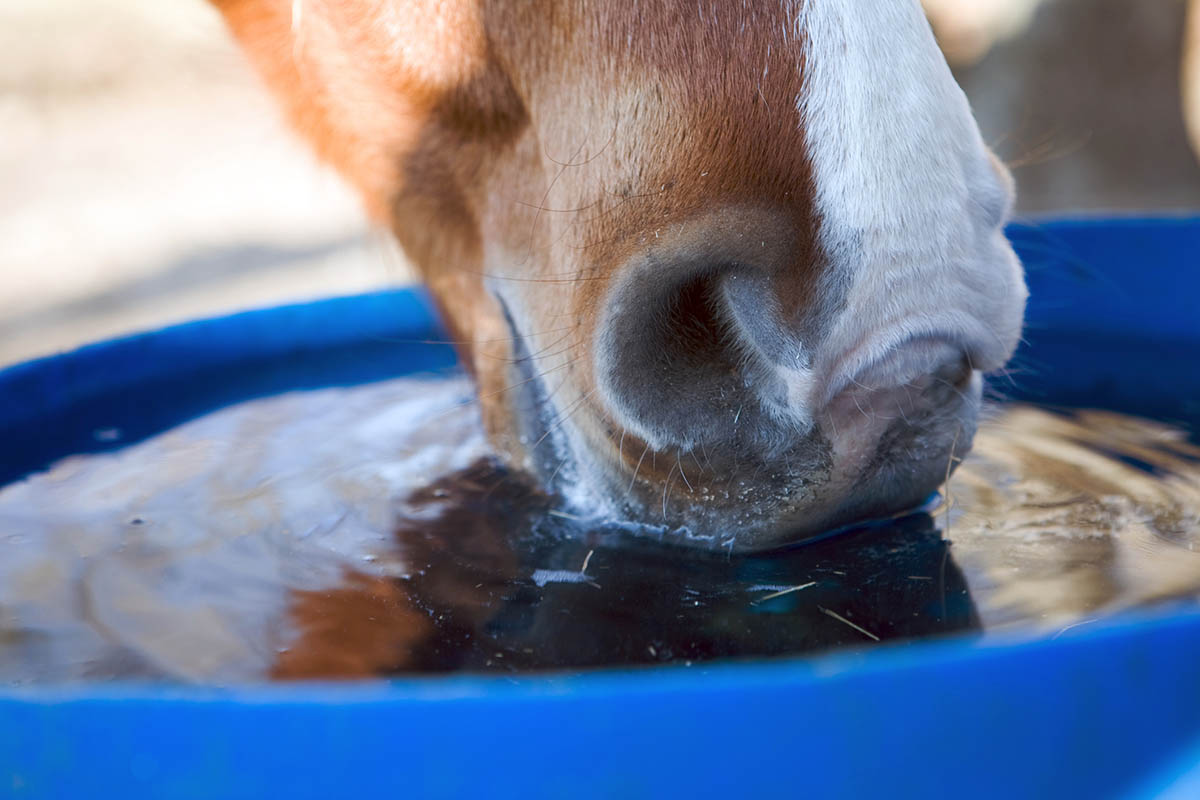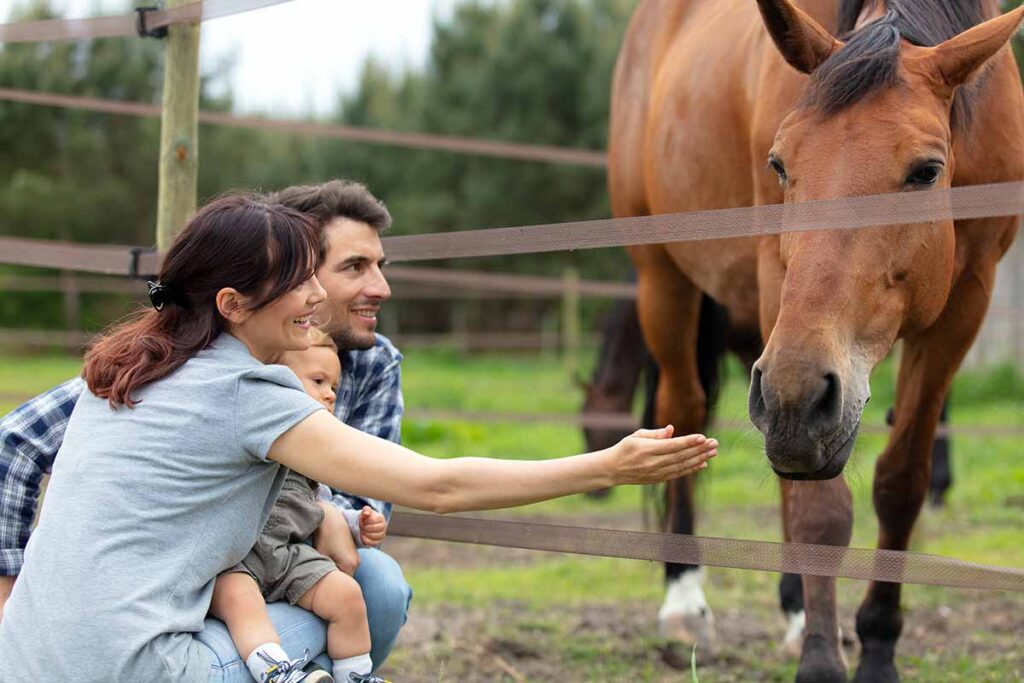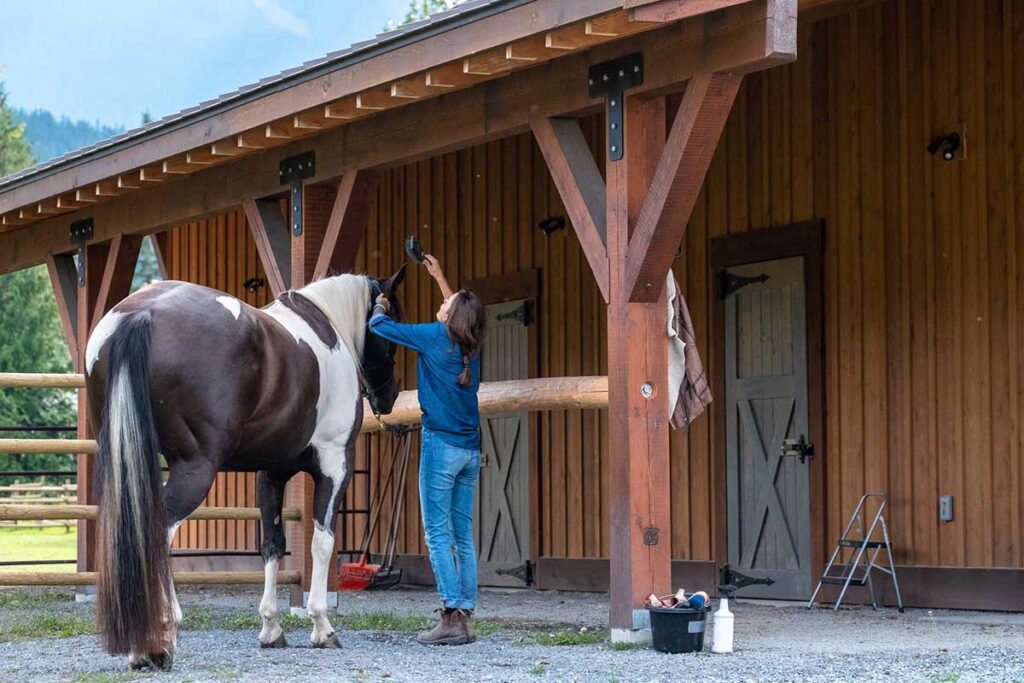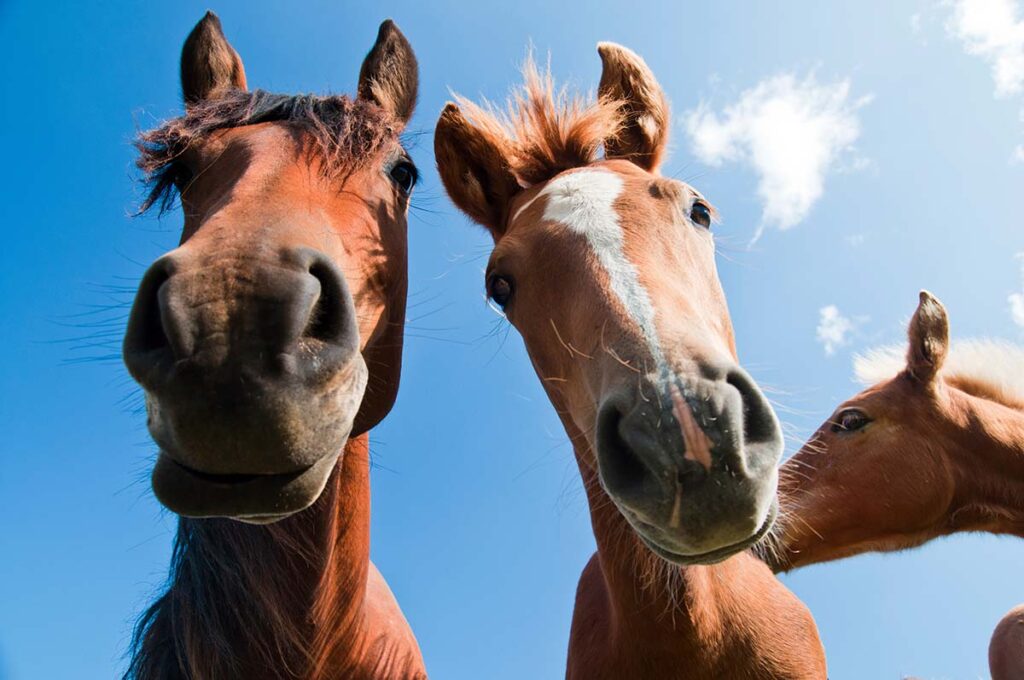You don’t need to be a veteran horse owner to know one of the most critical aspects of equine care is hydration. Just like humans, horses need access to clean water for proper bodily function and overall well-being. But how much water does your horse need, and what can you do to encourage them to drink enough? In this article, we’ll explore the ins and outs of keeping your horse hydrated, from monitoring their water intake to adding electrolytes and more.
How Much Water Does a Horse Need?
The average horse drinks 5-10 gallons of water a day, maybe more depending on his exercise level and outside factors such as ambient temperatures. For example, your horse might need more water on a hot summer day than a mild spring day or during and after a long trail ride.
Your horse should have around-the-clock access to fresh drinking water. Provide water in a horse-safe trough or bucket. Avoid any container that has sharp edges or that is difficult to dump out and clean.
Tips to Make Sure Your Horse Drinks Enough Water

Horses that don’t drink enough water are at risk for dehydration and subsequent colic, so make sure your horse always has water access using these tips:
- Meter automatic waters so you can monitor daily intake.
- Use electric trough heaters/deicers when temperatures drop near or below freezing (and make sure horses can’t reach power cords, which pose an electrocution hazard).
- Keep water troughs and buckets clean and algae-free. Would you drink from that dirty bucket? If not, your horse might not either. You can expect to clean troughs at least once a week and buckets each time you refill them.
- If your horse is a hay dunker (which can turn a bucket of water swampy), make sure he has an alternative water source that’s always clean.
- Ponds and streams can expose your horse to diseases such as leptospirosis and present drowning and hypothermia danger. Consider fencing them off and using troughs for drinking water instead.
Signs Your Horse Is Dehydrated
Dehydration has several causes, including lack of water access, unpalatable water (some horses are picky and will only drink water from home when traveling), overexertion, and illness.
Signs of dehydration include:
- Lethargy and depression.
- Lack of skin turgor, which is identified by pinching skin on the horse’s neck for a few seconds. The skin should immediately return to its original state. If it doesn’t, that’s a sign of dehydration.
- Dry and/or white gumline mucus membranes and capillary refill time slower than 1-2 seconds (a sign of low blood pressure).
Knowing the signs of dehydration will help you intervene. That could mean offering water if it’s been unavailable (i.e., the barn manager forgot to fill his trough) or encouraging your horse to drink by offering fresh water and/or administering electrolytes or flavoring. In severe dehydration cases, your veterinarian might need to administer intravenous fluids.








